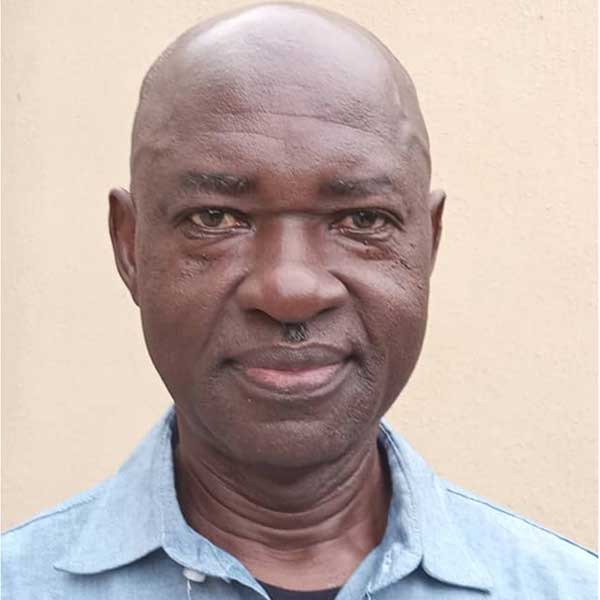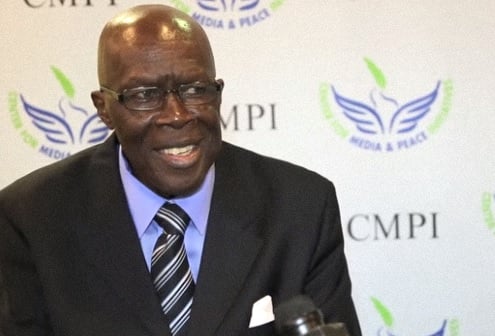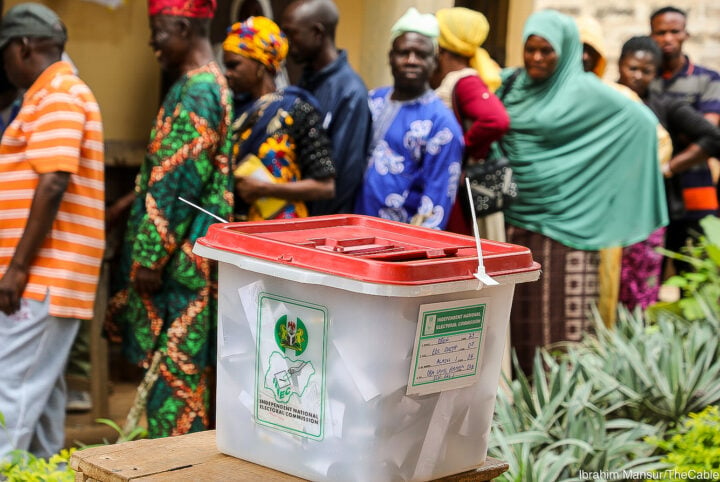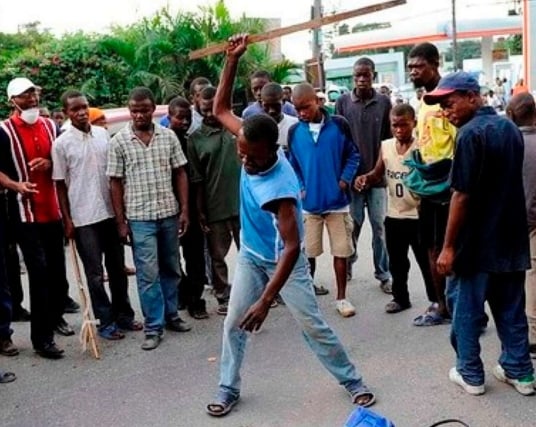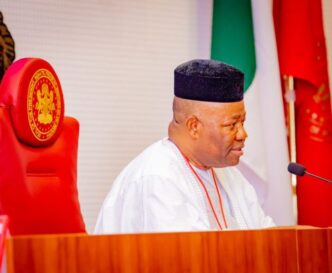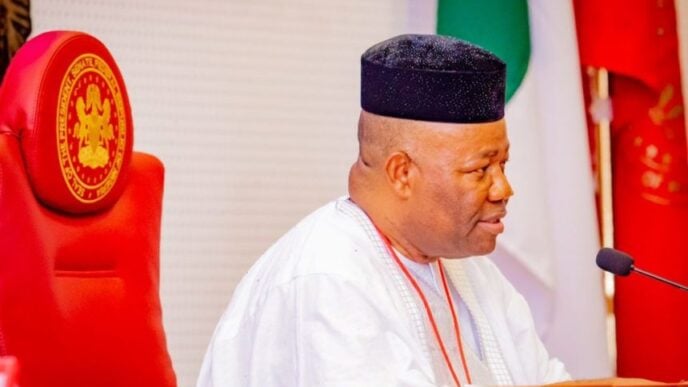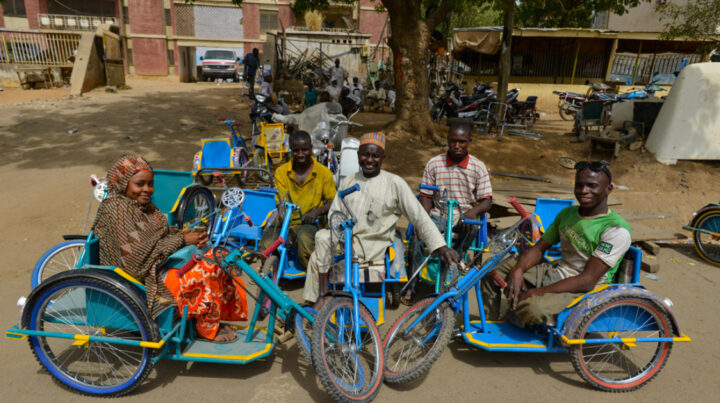Humphrey Nwosu
“The Senate ought to have treated the proposal to immortalise the late national electoral commission chairman differently.”
The Chairman of the defunct National Electoral Commission (NEC) which conducted the outstanding presidential election of June 12, 1993, the late Professor Humphrey Nwosu, was buried last week. It’s no longer news that hours before then, the Nigerian Senate threw out a motion that sought to perpetuate him. Sponsored by senators predominantly from the south-east region, it had three key entreaties namely, renaming the Independent National Electoral Commission (INEC) headquarters after him; bestowing a national honour on him; and officially paying condolences to his family members while also recognising their own sacrifices to support him. Humble requests by some accounts.
The arguments surrounding the move weren’t unexpected, after all. Let’s replay some, four from each side of the table. Senator Eyinnaya Abaribe who led the proposition didn’t mince words: “His courageous defence of the democratic electoral process during the 1993 presidential elections led to the famous June 12, which ultimately confirmed Alhaji M.K.O Abiola as the winner of the election…. He stood his ground, ensuring that Nigeria’s electoral wishes and aspirations were realised, which culminated in June 12 being marked as the authentic Democracy Day due to his unwavering stand as an umpire…”.
Senator Victor Umeh: “When a man leaves this world, his departure should be marked. Professor Nwosu was not just an ordinary person in Nigeria, he was chairman of NEC under the military regime. He revived Nigeria and put in place a democratic structure successfully using his designed A4 voting system…. He was summoned by the military government and was asked to postpone the election or stop it. He said no. He conducted the exercise and started announcing the result. He was about to announce Taraba State when the military stopped him.” Surely, recollections of that election will not end anytime soon.
Advertisement
Senator Osita Ngwu: “Whether we’re in support or against, Professor Nwosu will be buried tomorrow. Ibrahim Babangida held an event recently and everybody attended. If Nwosu was alive today and held a colloquium, everybody would still go there…. There was no way he could have announced the result with gun on his head.” Truly, downplaying the lethal atmosphere of that period especially for the leading players is, put mildly, disingenuous.
Senator Tony Nwoye: “Despite the threats by the military cabal, he went ahead to announce the election. It is very disappointing that some of us are distorting facts because Nwosu is an Igbo man.” Of course, that debate couldn’t have ended without the ethnic card. And Nwoye wasn’t alone. Millions of Nigerians do not think otherwise about his conclusion. I threw up that hypothesis in my master’s degree class last week and received the same response.
The lawmakers who carried the day didn’t lack enough arsenal either. Senator Adams Oshiomhole, one of the compelling orators on the floor, didn’t disappoint. As he put it, “Nigerians were really in pain because nobody was able to quote where Professor Nwosu announced the result. I was an activist in that struggle. If Prof Nwosu had the courage to announce the result, he could have saved history. Professor Nwosu and Babangida fooled Nigerians who voted during the election. If he was afraid of the gun, there were Nigerians who were protesting under the gun…. He cannot be rewarded.” Such numbing verdict!
Advertisement
Senator Jimoh Ibrahim: “It is a vulnerability of democracy that is before us this morning because the professor didn’t have the courage to announce the election. (Professor Attahiru) Jega had the courage to face (President Goodluck) Jonathan that he didn’t win the election and declared (President Muhammadu) Buhari the winner. He didn’t die and nothing happened…. I wish Professor Humphrey Nwosu a journey of mercy but the Senate should run away from naming him.” Hey, putting two wildly dissimilar eras on the same pedestal and comparing despotic, red-eyed soldiers with a forbearing Jonathan is most unfortunate, quite frankly.
Senator Cyril Fasuyi: “Conscience is an open wound and only the truth can heal it…. Nobody rewards effort. We thank everything that Humphrey Nwosu did but one thing that is lacking is the result. He only made efforts and as long as he did not announce the result, he cannot be called a hero.” Who would tell Fasuyi that a student doesn’t need to score 100 percent to be awarded an A? It’s for the same reason that “excellent” rather than “perfect” is usually the apex remark in examination results. That opening quotation from Sheikh Utman Dan Fodio, therefore, has fallen flat here.
Senator Solomon Olamilekan: “As a result of the action of Professor Humphrey Nwosu, I lost my immediate younger brother. He died right in front of me because Nwosu failed to do his duty. He released the result but failed at the critical moment. If he’s too cowardly to withdraw at the critical moment, he does not deserve to be immortalised. I’m not speaking along the line of ethnicity but I’m speaking as a Nigerian.” Sorry for your bereavement, sir, but the cause-effect phenomenon isn’t always easy to prove. Yes, Nigeria lost numerous things as citizens, homes, corporate organisations and a geo-political entity. It was indeed an unprecedented period many would wish forgotten. Yet, we must rise above personal pains to do what’s right.
But that hasn’t been easy. Chinua Achebe’s celebrated collection of short stories, Girls at War, contains a character described as habitually telling “fictitious stories of heroism”. Also, a Hollywood award-winning film, Crocodile Dundee, features a lead actor whose familiar pastime is to regale people with narrations of his adventures and exploits. An actress in the movie observes, however, that, over time, the tales “get better and better”. Some embellishment here and there bordering on hyperbole and outright falsehood. This is what I’ve noticed about that exceptional presidential poll when persons speak of their own roles in it. You would think that the masses who voted overwhelmingly oblivious of ethnic, regional and religious sentiments for Abiola never mattered in the scheme of things.
Advertisement
That election has a confirmed place in Nigeria’s chequered history as its fairest and freest, thankfully. After over two decades of describing Chief Mohood Abiola as the “presumed” winner, President Muhammadu Buhari changed that status to a gazetted one, albeit belatedly and posthumously. And not to leave anyone in doubt about his seriousness, he moved Democracy Day from May 29 to June 12. The former president was then in the heat of his quest for second term and he desperately needed to secure the goodwill of a section of the country. Some people have questioned his real motive for the shift on that ground. I’ll look closer at June 12 soon.
On a final note, Abiola who fled the country in the midst of that tension with his popular adage that “nobody stands in front of a moving train” has since been awarded the nation’s highest honour, Grand Commander of the Federal Republic (GCFR), and Ambassador Babagana Kingibe, his running mate, Grand Commander of the Order of the Niger (GCON), and more honours. Even General Ibrahim Babangida, the self-styled military president and commander-in-chief of the armed forces who watched helplessly, by his own recent revelation, as Abacha led the annulment gang that did the damage is still a member of the Council of State. With due respect to Nigerians who have received government recognition in various forms, many others whose contributions can’t pass any meaningful test have also been equally honoured. So, what sort of cowardice did Nwosu exhibit, considering the circumstances at the time, that has denied him these modest requests? Perhaps, his own day is ahead. Perhaps.
Ekpe, PhD, is a member of THISDAY editorial board.
Advertisement
Views expressed by contributors are strictly personal and not of TheCable.
